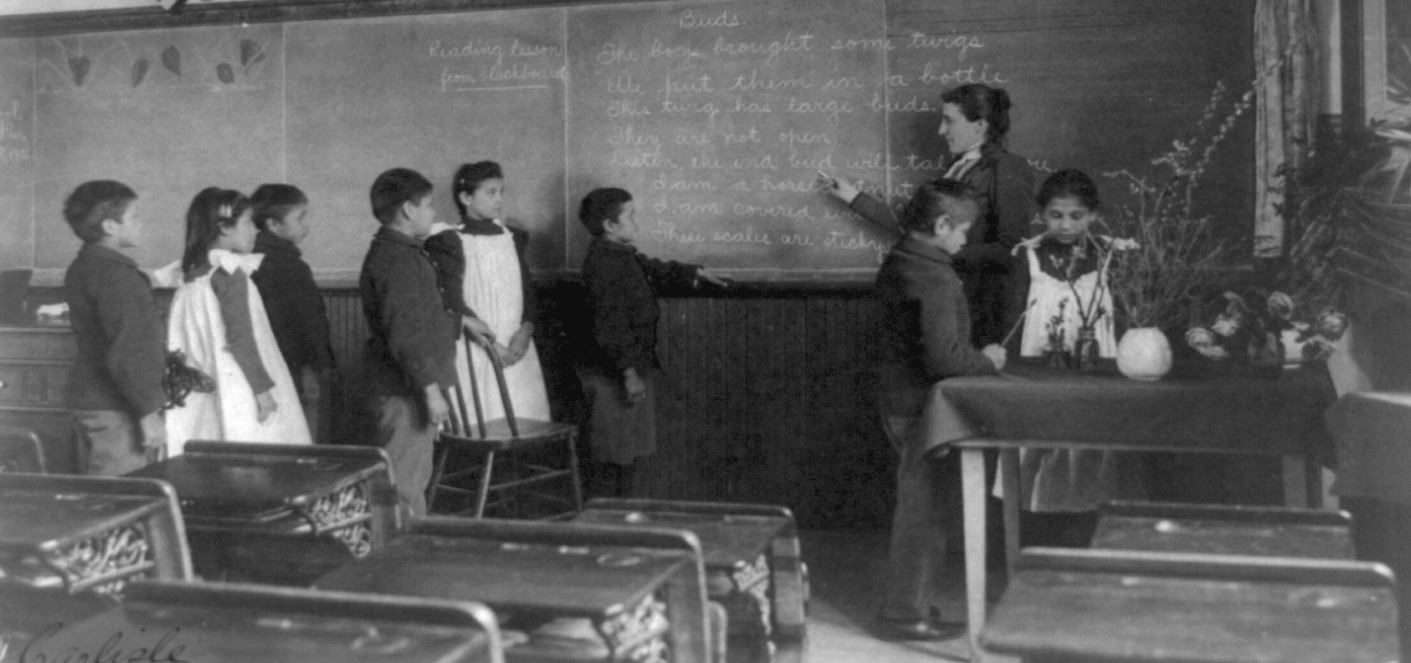
- Details
- By Native News Online Staff
In a collaboration to assist descendants of Indian boarding school survivors, the American Indian College Fund and the National Native American Boarding School (NABS) Healing Coalition have joined forces to provide scholarships of $3,000 each to 20 recipients.
The scholarship is designed to acknowledge the experiences of boarding school survivors and to allow families to come together and heal. In the application process, students share a 500-word essay about their relationship with a boarding school survivor in their family. This process is designed to prompt sharing and healing, while acknowledging the impact of this trauma on their lives and relationships.
Want more Native News? Get the free daily newsletter today.
NABS raised over $51,000 as part of a matching campaign to fund the scholarships for this academic year. The American Indian College Fund made up the difference.
In addition to financial support, the American Indian College Fund (the College Fund) provides students with culturally relevant and holistic support to facilitate persistence in education, academic achievement, personal and professional development, and career planning.
“We know that the impacts of Indian boarding schools are intergenerational and have played a profound role in the educational disparities Native American students experience today. This scholarship program is a first step for boarding school descendants to heal intergenerational trauma, change their own narratives, and restore what was taken from us through Indian boarding schools,” Christine Diindiisi McCleave, CEO of NABS Healing Coalition said.
“Native students are reclaiming education. All of us are survivors of intentional damage to the rights of our Tribes to educate and socialize their own people. The College Fund is honored to work with NABS to support those who are directly impacted by boarding schools. This helps all of us restore ourselves to the abundant and healthy lifestyles that are our right,” Cheryl Crazy Bull, President and CEO of the American Indian College Fund said.
To qualify for the scholarship, a student must be a U.S. citizen, a tribal member or descendant of a federally or state-recognized tribe, a boarding school survivor or direct descendant of boarding school survivors, and enrolled full-time in a non-profit higher education institution in the United States. Students do not need to demonstrate financial need for this scholarship. Applicants must complete the College Fund’s online Full Circle Scholarship application and a 500-word personal essay about the assimilation model of boarding schools. Interested students can apply at https://collegefund.org/students/scholarships/.
More Stories Like This
Native Americans Could Be Hit Hard as Education Department Resumes Student Loan Wage GarnishmentHanging a Red Dress for Christmas: MMIP, Native Higher Education, and Hope for a Better New Year
Native Students Can Win $5,000 Scholarship, International Distribution in Pendleton Design Contest
American Indian College Fund Raises Alarm Over Plan to Shift Native Programs Away From the Dept. of Education
MacKenzie Scott Foundation Gives $5 Million Contribution to Little Priest Tribal College
Help us defend tribal sovereignty.
At Native News Online, our mission is rooted in telling the stories that strengthen sovereignty and uplift Indigenous voices — not just at year’s end, but every single day.
Because of your generosity last year, we were able to keep our reporters on the ground in tribal communities, at national gatherings and in the halls of Congress — covering the issues that matter most to Indian Country: sovereignty, culture, education, health and economic opportunity.
That support sustained us through a tough year in 2025. Now, as we look to the year ahead, we need your help right now to ensure warrior journalism remains strong — reporting that defends tribal sovereignty, amplifies Native truth, and holds power accountable.
 The stakes couldn't be higher. Your support keeps Native voices heard, Native stories told and Native sovereignty defended.
The stakes couldn't be higher. Your support keeps Native voices heard, Native stories told and Native sovereignty defended.
Stand with Warrior Journalism today.
Levi Rickert (Potawatomi), Editor & Publisher

